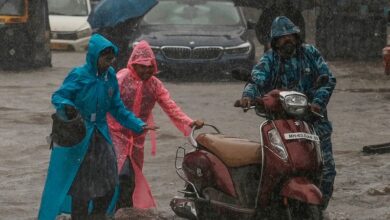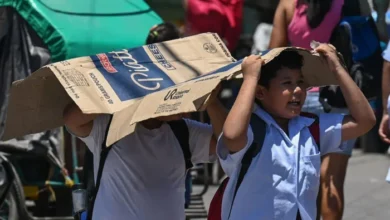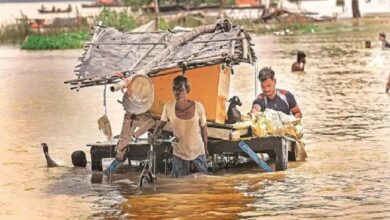Dengue grows deadlier in South Asia due to climate change
The threat is not restricted to South Asia as dengue rates are rising globally with 4.2 million cases reported in 2022 — up eight-fold from 2000 — the World Health Organisation (WHO) says.

By Mosabber Hossain, Aadesh Subedi
Mosquito-borne dengue fever is taking a heavy toll on South Asian nations this year as Bangladesh grapples with record deaths and Nepal faces cases in new areas, with disease experts linking worsening outbreaks to the impacts of climate change.
Entomologists and epidemiologists say rising temperatures and longer monsoon seasons are providing ideal breeding conditions for mosquitoes.
The threat is not restricted to South Asia as dengue rates are rising globally with 4.2 million cases reported in 2022 — up eight-fold from 2000 — the World Health Organisation (WHO) says.
Earlier this year, WHO said dengue is the fastest-spreading tropical disease worldwide and represents a “pandemic threat”.
In Bangladesh, at least 691 people have died in 2023, and more than 138,000 have been infected, official figures show, making this the deadliest year since the first recorded epidemic in 2000.
The previous record toll was 281 deaths last year.
A lack of proper prevention measures has allowed the den-gue-carrying Aedes aegypti mosquito to spread across almost all of Bangladesh, said Kabirul Bashar, an entomologist and zoology professor at Jahangirnagar University in the capital Dhaka.
Dengue is common during the June-to-September monsoon season, when mosquitoes thrive in stagnant water.
Meanwhile, Nepal, which first recorded dengue in 2004, has had at least 13 dengue deaths and more than 21,200 cases this year in 75 of its 77 districts, said officials.
This year could match the 2022 toll of 88 deaths and 54,000 cases, said Uttam Koirala, a senior public health officer at the national epidemiology and disease control division.
Meghnath Dhimal, a senior research officer at the Nepal Health Research Council, said the incidence and spread of dengue had been rising quickly nationwide in recent years.
Rising temperatures mean cases have started occurring in colder autumn months, while Nepal’s higher mountain districts that never before had the disease are now struggling to curb its spread, he said, describing the shifting patterns as “strange”.
The WHO says dengue is rising partly because global warming benefits mosquitoes, along with other factors, including movement of people and goods, urbanisation and problems with sanitation.
In July, the WHO said an unusual amount of rainfall, together with high temperatures and high humidity, had helped the mosquito population to grow across the nation.
Furthermore, Bangladesh has experienced longer-than-usual monsoon seasons in recent years, with erratic rainfall over the March-to-October period and more breeding grounds popping up for mosquitoes, said disease and health experts.
The number of potential breeding sites identified in 2023 is the highest in the last five years, said Nazmul Islam, director of the disease control branch of Bangla-desh’s Health Department.
Fiercer floods fuelled by heavy rains and melting glaciers — driven by climate change — are another major factor behind the spread of dengue, said Mohammad Mushtuq Husain, an adviser at the Institute of Epidemiology, Disease Control and Research.
The Bangladeshi government has also cited climate change as a driver behind the country’s worsening dengue outbreak.
As dengue lacks a specific cure, health experts say the disease must be kept at bay through control of mosquito breeding, engaging with the public, and managing symptoms.
Civil society and development organisations are also helping to tackle the disease.
Sanjeev Kafley, head of the Bangladesh delegation for the International Red Cross, said it was helping to raise public awareness, procuring testing kits, and boosting the availability of platelets used in blood transfusions to treat some patients.
Yet when it comes to treatment broadly, ordinary families face high costs. Researchers from Dhaka University’s Institute of Health Economics have warned that total medical expenses for dengue patients may exceed 10 billion taka this year, up from 4.5 billion taka in 2019.
Dhaka resident Akhtar Hossain spent 60,000 taka on private hospital care for his daughter, Ayesha Tabassum Taqwa, who ultimately died of dengue last month at the age of 10.
Hossain cried as he spoke of Taqwa’s love of learning.
“Her books, notebooks … are all still on the reading table. (She) will never arrange new books. “(But) who can we blame and what is the point of talking about it?”
* The writers are from Reuters




